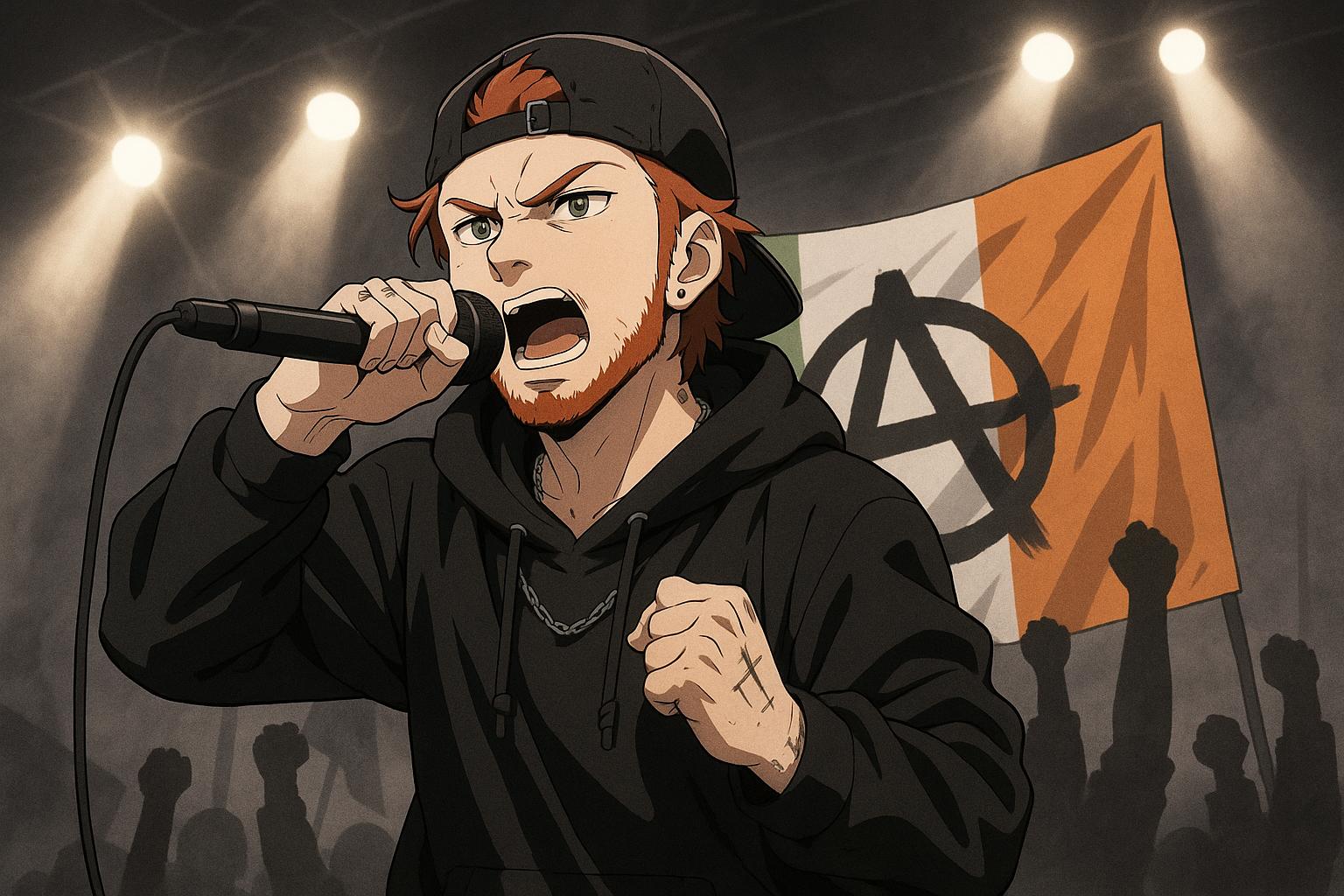The recent legal troubles of Liam Óg Ó hAnnaidh, known as Mo Chara, a member of the Irish rap trio Kneecap, have ignited a firestorm of debate surrounding free expression and artistic integrity in the UK. Charged under the UK's Terrorism Act for allegedly displaying a Hezbollah flag during a concert in London, Ó hAnnaidh's case stands as a potent symbol of the tensions between political expression and state power. Supporters argue that his arrest reflects a wider issue of systemic censorship targeting artists who challenge the status quo.
Kneecap, hailing from Belfast, has long been recognised not just for its music, but for its provocative lyrics that often tackle themes of Irish identity and resistance against colonialism. This latest incident traces back to a performance on November 21, 2024, where videos emerged purportedly showing the band expressing support for banned groups, including Hezbollah and Hamas. Critics have been quick to label their actions as dangerously inflammatory. British Interior Minister Yvette Cooper condemned remarks made by Mo Chara, calling them reckless and indicative of a troubling trend among certain performers. However, Kneecap has firmly denied the accusations, asserting that their statements have been misrepresented, aimed more at critiquing political injustices rather than endorsing violence.
The band's controversial messages have not been limited to a single incident. Mo Chara faced public backlash after a prior performance where he stated, "The only good Tory is a dead Tory," and encouraged the audience to “kill your local MP.” Such comments drew outrage from various political figures, leading to further scrutiny of Kneecap's artistic output. The group has since issued apologies to the families of murdered British lawmakers Jo Cox and David Amess, acknowledging the sensitivity of their statements in light of the UK’s fraught history of political violence. Nevertheless, they maintain that their art is intended as commentary, rather than incitement.
The investigation into Kneecap also follows their performances at high-profile festivals, such as Coachella, where the group displayed messages in support of Palestinian rights while facing accusations of promoting hate speech. Notably, criticisms were levied against them from public figures, including Sharon Osbourne, who demanded that their international performance privileges be revoked. This backlash highlights a growing divide within the political dialogue surrounding artistic expression, especially when it intersects with contentious geopolitical discussions.
Kneecap’s performances are often viewed through the lens of a broader Irish artistic tradition, known for its rebellious spirit and political commentary, reminiscent of influential figures like Christy Moore and Sinead O’Connor. Irish art has long served as a vehicle for social and political critique, making the current charges against Mo Chara appear not just as legal challenges, but as attempts to silence a voice rooted in a rich tradition of resistance and rebellion. As Kneecap’s manager, Daniel Lambert, stated, the band represents a new wave of working-class artists willing to confront the injustices they see around them, despite potential harm to their careers.
As the case unfolds, it remains to be seen whether the charges against Ó hAnnaidh will resonate beyond the immediate legal implications. Advocates for artistic freedom argue that such actions only amplify the voices being silenced, signalling to young artists that their words have the power to inspire significant societal reflection. Critics of the British establishment contend that the treatment of Kneecap showcases a fundamental fear of dissent—a fear that, according to this narrative, could eventually backfire, driving a more persistent and determined push for artistic and political expression among the younger generation.
Ultimately, the response from the British establishment may well determine the future narrative around not only Kneecap, but the broader discourse on artistic freedom. With a court appearance set for June 18, the music world will be watching closely, as the implications of this case could extend far beyond a singular performance, touching on the very fabric of free speech in contemporary society. As the song of dissent continues, it challenges not merely the legalities of artistic expression, but the societal structures that shape our understanding of free speech and protest.
Reference Map:
- Paragraph 1 – [1], [2]
- Paragraph 2 – [2], [3], [4]
- Paragraph 3 – [5], [6]
- Paragraph 4 – [3], [6]
- Paragraph 5 – [1], [4], [5]
- Paragraph 6 – [1], [4]
- Paragraph 7 – [2], [6]
Source: Noah Wire Services
